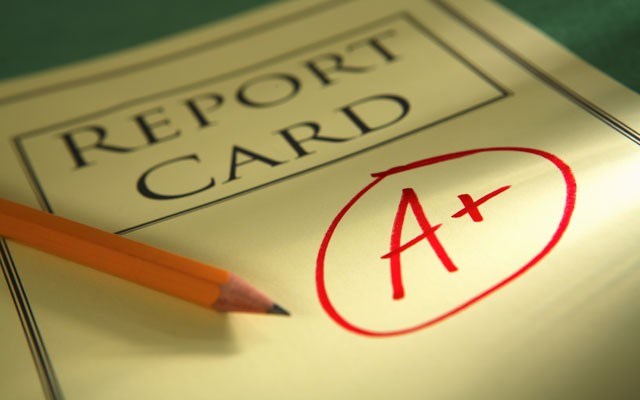The debate over the value of giving letter grades to measure children's schoolwork has been going on for decades.
For many, the idea of letting go of a system that uses a letter grade to describe a student's learning is hard to embrace. For others, it is long overdue.
The primary function of the grading system was to communicate mastery of school subjects. It was supposed to be a system that allowed an educator to share with a student, their parents and other educators how learning was progressing.
Has it been a bad system? I suppose that depends on your experience with it.
But let's be honest here — there is no escaping the fact that getting an "A" has grown into a driving goal for many students. After all, it remains the measuring stick used to get into university in Canada and in many places around the world, and there is no sign that post-secondary institutions are going to change anytime soon.
This week, most parents learned in the media that the Sea to Sky School District is taking part in a pilot project using gradeless report cards for some Grade 4 through 9 classes.
(If this change is adopted, when students get to Grade 10 it will be back to letter grades, as that's the only way to assess achievement in school for scholarships and post-secondary admittance — for now.)
Peter Jory, director of instruction, technology and innovation for the school district, explained to Pique that students and their parents will continue to receive assessment reports with detailed feedback under the project.
Part of the argument to move to this system, according to Jory, is that letter grades pigeonhole kids so they feel defined by their marks — poorly performing kids feel defeated while "A" students only work as hard as they need to for the mark and do not engage in meaningful learning.
It is true that some students who experience failure over and over, with no one to help them pick themselves up and try again until the task is mastered, may find the grading system their enemy, but is that the fault of the grading system?
After all, the letter-grade system is not supposed to be the only way parents and students get information about how school is going. The reality is, though, that it has become the main way students' learning is measured.
Learning is a continuum. In the early years, teachers move their students along this continuum helping them master not just reading and writing, but also social skills as well. The focus is on growth, and understanding that if they keep trying and working at it, they will master the task.
Somewhere along the way, this has been lost in some classes and by high school, the student is so fully focused on getting into a post-secondary institution, or graduating and leaving school, that the love of learning seems to have disappeared for many students, despite the hard work many teachers put into creating engaging and challenging learning environments.
It's about getting courses done, getting credits, having volunteer hours, being on committees, starting their own charity, saving the world... ticking all the right boxes to go on to higher learning or get a job.
Sea to Sky is a leading district when it comes to embracing the changes that must happen in education to help students meet their own goals, so in a way, it was no surprise to learn of the pilot project.
Has it caused some parents to take a collective gasp? Certainly.
But all parents and students really want is meaningful feedback from teachers, and so, as the pilot project goes ahead, many are wondering how personalized reporting will happen? Will the old letter-grade system simply be replaced with the now familiar, not yet meeting expectations, approaching expectations, meeting expectations, and exceeding expectations grading system. Personally, there is very little difference to me between reading a student got a "B" and getting a "meeting expectations."
Or will a more innovative system be introduced?
I can say this without reservation — most parents would be overjoyed to get a personalized report card about their child's growth in learning and some suggestions about how to help their kids in the challenges they all face.
And let's keep the parent-teacher meetings going — they are an amazing window into a student's learning.
Parents will have the opportunity to learn about the pilot project and give feedback on it in the coming weeks.
Take a deep breath and embrace the changes coming to our classrooms — and speak up about what is working and what isn't. It's up to everyone involved in the education of our children to push for the very best system we can achieve.




